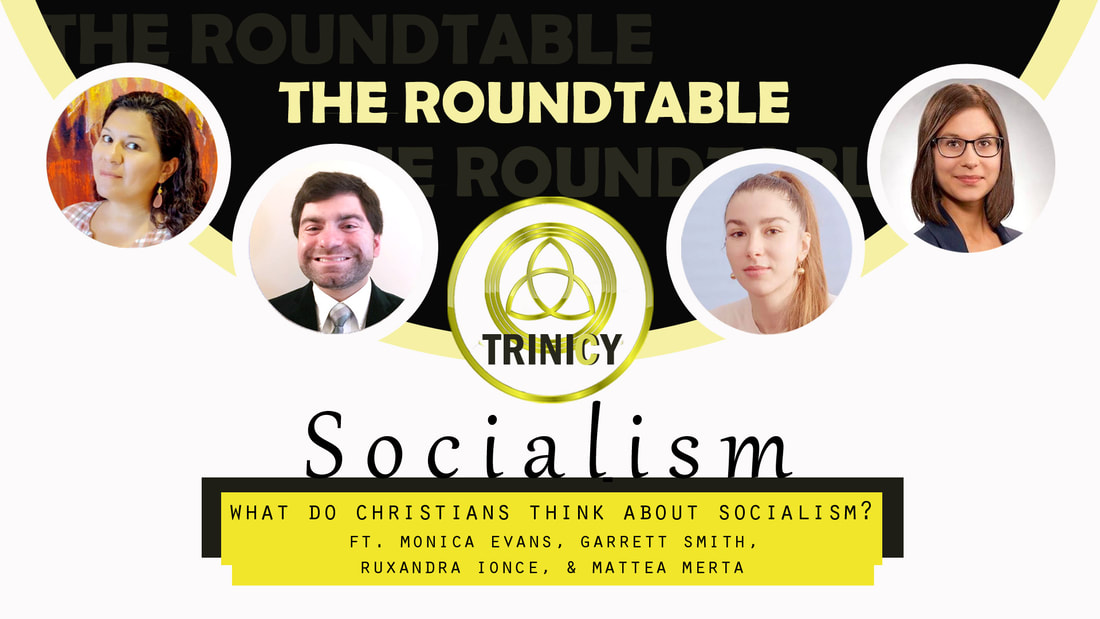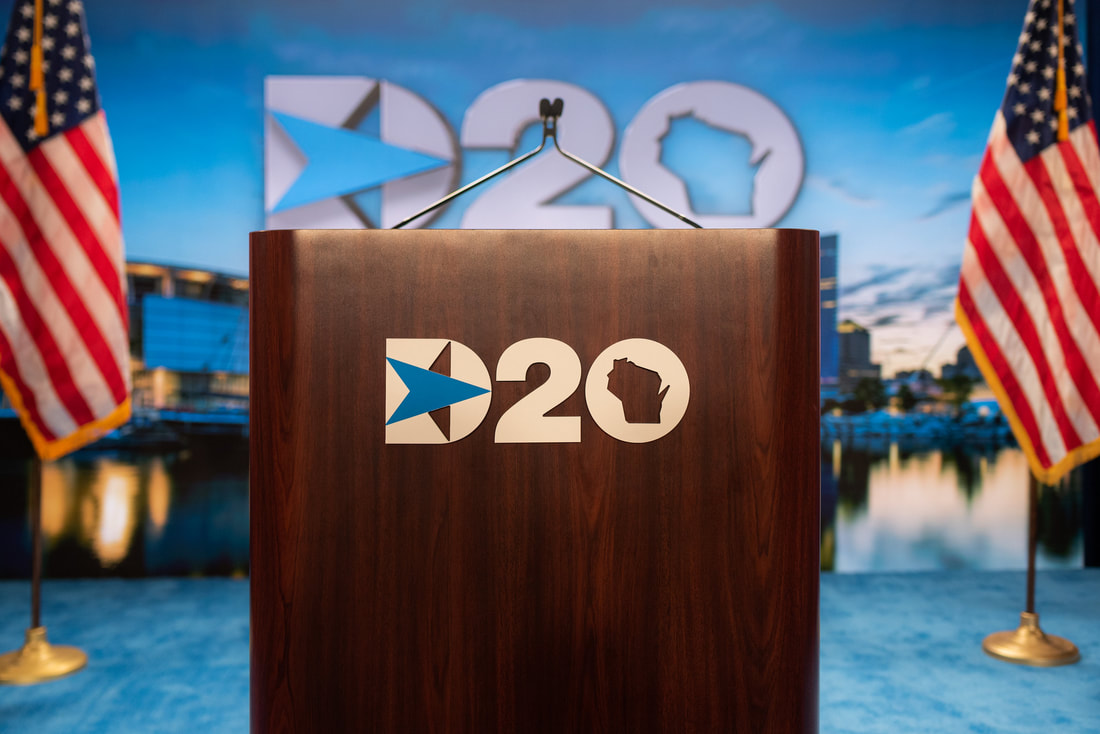|
Tony Banning, TRINICY Mentor and Head of Public Relations, attending his niece's quinceañera celebration with his beautiful family WHO IS TONY?Tony Banning wasn't always the beaming advocate for Christ and champion of youth that he is today. He walks a path illuminated by faith, but his beginning was shrouded in rejection and adversity. This is the story of a man saved from darkness and his subsequent mission to share the light with young hearts seeking their own way. Q: Tony, let's start at the beginning. Who is the Tony that God saved out of darkness? A: There was a time when chasing ambition was replaced by chasing purpose. My focus was on climbing the corporate ladder, building businesses, and accumulating what society deemed success. It was a hollow victory, built on sand. Through personal struggles and a growing emptiness, I finally surrendered to God's calling. That's when the real journey began. Q: Who are you in Christ today? A: I wear many hats – consultant, entrepreneur, educator, but at the core, I'm a servant of God. My life is a testament to His transformative power. Now, my greatest fulfillment comes from sharing that transformation with others, especially younger generations navigating their own paths. Q: Why TRINICY? What drew you to this online mentorship program when you could have chosen from so many other options? A: I can’t take credit for anything and firmly believe God connected me with Trinicy. I wanted to be part of a humble, authentic, and forward-thinking ministry in a remote capacity when I saw a job posted on LinkedIn for a mentor. I saw in Trinicy a beacon of hope, a platform where faith intersects with real-life guidance. It's not just about discipleship, it's about walking alongside young Christians, sharing wisdom, and empowering them to make informed choices. That resonated deeply with my own story and my desire to pay it forward. Q: Why online mentorship? Do you think virtual connections can truly impact young hearts? A: In today's world, online spaces are where young minds spend a significant amount of time. Trinicy leverages this familiarity to offer accessible, on-demand guidance. Mentorship transcends physical limitations, providing a safe space for open dialogue and support regardless of geographical barriers. Q: You've been mentoring young men in the program for a while now. What are some of the highlights and challenges? A: The highs are witnessing their "aha" moments, seeing them gain confidence, and navigating life's hurdles with newfound faith. The lows are facing anxieties, temptations, and economic uncertainties they grapple with. But the dynamics are beautiful – a mutual exchange of learning, where I share my experiences and they challenge me with their fresh perspectives. Both sides leave enriched. Q: You juggle so many roles – how do you manage it all and still thrive as a mentor? A: Time management is key. I go to bed at 8 p.m. and wake up at 2:00 a.m. Monday to Saturday. From the time I wake up until I go to bed, I am time-blocked and make the most of everyone/every meeting/every person/ everyday. Of course, what truly fuels my energy is the purpose behind it all. Each role serves a greater mission – building a legacy of faith and empowering future generations. When a person’s work aligns with God’s calling, it ceases to be work and becomes a labor of love. Q: For older Christian men considering taking the Great Commission more seriously, what would you say? A: Don't let age or self-doubt hold you back. You possess a wealth of experience and wisdom that can light the way for young minds. Step out of your comfort zone, embrace new ways of connecting, and watch your life take on a deeper meaning. Q: Anything else you'd like to share that paints a fuller picture of you for our readers? A: I'm an avid reader, a terrible joke teller, and a firm believer in laughter's healing power. My greatest joy comes from spending time with family, whether it's hiking in the mountains or having theological debates over dinner. CONNECT WITH OUR MENTORTony joined TRINICY in the Spring of 2023 as a Mentor. He has worked with male mentees from India and South Africa, leading them through a three-month Bible study, while also providing extra guidance on their academic, professional, and ministerial goals. Connect with Tony on LinkedIn. JOIN THE GREAT COMMISSION!To apply to TRINICY's Online Mentorship Program as a Mentor or a Mentee, please visit www.trinicy.org/omp or click HERE.
0 Comments
David M. Kowalke, Jr. | @hongkongkowalke | TRINICY.orgPhoto by Mohan Nannapanemi THE NINE-FLAVORED FRUIT DEVOTIONAL SERIES But the fruit of the Spirit is love, joy, peace, patience, kindness, goodness, faithfulness, gentleness, self-control; against such things there is no law. Galatians 5:22-23 (NASB) THE FLAVOR CALLED “FAITHFULNESS” We are unable, by human effort, to produce the character traits of godliness in our lives. Christians begin their relationship with God by faith in the person of Christ. It is also by faith in Him, and the power and presence of the Holy Spirit, that the very traits of God are developed and made evident in the Christian’s life. Look at the list of the nine-flavors of the Fruit of the Spirit found in Galatians 5:22,23. If we try to mimic them, we will fail. Each flavor will be only a waxy, tasteless version of the succulent reality. They are a product of the Spirit, not of the flesh. If you try you will fail. If you trust, He will succeed! It is when our lives have an attitude of devotion to God that He Himself produces in us the Fruit of the Spirit...the very actions that reflect the nature of God! The nine ‘flavors,’ or characteristics of this fruit include the ‘flavor’ Faithfulness. For the sake of illustration, let’s just say that the word “Wed-d-ding” is spelled with 3-Ds instead of two! To measure our understanding of, commitment to, and whether Spirit-produced Faithfulness is present in our lives, let’s look at it in “3-D”! 1st “D” - DEVOTED It is God’s Faithfulness to us, as the Bride of Christ, which is the standard of Faithfulness we are to demonstrate. Though now retired from teaching high school, I have had the honor of officiating at the weddings of a number of my students, as well as two of our four children. The quaint phrase “‘til death do us part” has lost much of its emphasis on modern young hearts, filled with wide-eyed and fuzz-focused emotion! In order to punctuate and highlight the commitment and faithfulness the two lovers are expressing to one another, I often substitute the phrase, “until I die.” It is this kind of Faithfulness and loyalty that Devotion displays. Faithful Devotion until death. It might sound a bit strange to some, but many times I have looked at my wife while she was sleeping and have, with just a whisper, said to her, “I will never leave you or be unfaithful to you.” I know she believes it...I just like to hear myself say it! 2nd “D” - DEPENDABLE This word is not very glamorous, but it is very practical. It’s like when your mother went shopping with you and picked out the plainest, ugliest shoes on the rack and said, “These are very sensible shoes!” The wedding that uses the phrase, “for better, for worse, for richer, for poorer, in sickness and in health, to love and to cherish…” is taking the time to have the lovebirds make their union together a very practical one! “If I don’t feel like being the right person when you might be hard to live with, I will.” A significant part of that is being Faithful, no matter the circumstances. I have, more than once, had a husband say to me in the privacy of my office, “Pastor Dave, I don’t love her anymore!” My reply has been, “I understand. Then love her!” Dependability is not a feeling. It is being true to my word, unconditionally. God is Dependable. He is Faithful. His Word is good. He is always present and available and able. As we walk in and appropriate the power of the Spirit, so now we can bear the sweet Fruit that tastes like Faithfulness! 3rd “D” - DEDICATED Have you ever been to a dedication ceremony? Perhaps of a building or a ship? My wife and I had a Dedication ceremony in our wedding where each of us took a candle and lit a different one together saying that we would, as one, Dedicate our two lives and our home to the Lord. Two former students of mine (Steven and Cynthia) had a Dedication ceremony in their wedding and the first thing they did, even before their first kiss as husband and wife, was to have communion together, remembering the Lord’s death for them. Then they washed each other's feet, Dedicating themselves to serve one another for the rest of their lives together! They then walked down the grass isle barefoot, smiling and with a briskness in their step as they entered into their lives together! If we, just as those ceremonies symbolize, would Dedicate ourselves to glorifying God and enjoying Him forever, what a different world this would be! We desire to be faithful to the Lord who is always faithful to us. The Lord desired to be faithful to us, when we were not! Suggested prayer Father, how often I walk away from you, and you pursue me without fail. Your Devotion and Faithfulness knows no limit. Thank you for being one on whom I can always Depend, through the times of blessing, and distress. By your grace and with your power, I Dedicate myself to you anew, in gladness, Father, that you will never leave me nor forsake me. In the name of the One who is called “Faithful” and “True.” Amen.
Photo by Daria Shevtsova THE NINE-FLAVORED FRUIT DEVOTIONAL SERIES But the fruit of the Spirit is love, joy, peace, patience, kindness, goodness, faithfulness, gentleness, self-control; against such things there is no law. Galatians 5:22-23 (NASB) THE FLAVORS CALLED “KINDNESS” AND “GOODNESS” This short article is called a “devotional,” but there is a world of difference between words on a page written to encourage the believer in their faith, and a life of devotion to God. Christians can ‘strategize’ their practical lives with displays of Christian characteristics, such as the Fruit of the Spirit found in the letter of Paul to the Galatians, and yet still be far from a life of devotion to God. It is not the characteristics that produce devotion. It is devotion that produces these nine characteristics, and displays them in our lives for all the world to see the wonder of our God! It is when our lives have an attitude of devotion to God that He Himself produces in us the Fruit of the Spirit...the very actions that reflect the nature of God! The nine ‘flavors,’ or characteristics of this fruit include the ‘flavors’ Kindness and Goodness. To measure our understanding of, commitment to and whether Spirit-produced Kindness and Goodness are present in our lives, let’s look at them in “3-D!” 1st “D” - DISPOSITION The word “disposition,” according to Webster, means, “a prevailing tendency, mood, or inclination.” Instead of a natural disposition to react to others on the basis of how we are treated, we ought to seek a spiritual disposition. This will enable us to act in accordance with God’s disposition and attitude He displays toward us. “If you do good to those who do good to you, what credit is that to you? For even sinners do the same.” Luke 6:33. This disposition of Kindness inside the believer is created by the Holy Spirit and makes us see the needs of others as if they were our own. The Kindness we have toward others will result in doing Good to all men. “So then, while we have opportunity, let us do good to all people, and especially to those who are of the household of the faith.” Galatians 6:10, and even, “...love your enemies, do good to them…” Luke 6:35. 2nd “D” - DEEDS Kindness is the authentic desire for God’s best for others, and Goodness is the action that intentionally results in deeds that contribute to that end. Instead of, or perhaps along with, what we have come to call “random acts of kindness,” perhaps we ought to intentionalize and become proactive as we seek to represent the loving hand of God in people’s lives. Doing good ought to be deliberate, not just impulsive. There is a time for being impulsive, but it is always time to be deliberate! A person is seen as a Kind person, caring about others, not mostly by what they say, but by the Good that they do. 3rd “D” - DISTINCTION As a high school teacher, of theology at that, I would cringe slightly when I would hear one of my Sophomores ask their friend, “Hey, how are you doing?!”then to hear the response of, “Good!” While not an English teacher by any stretch of the imagination, the adverb that should be used is, “Well!” How great would it be if when we are asked, “Hey, what are you doing?” that we would answer, “Good!” Oh, that our lives would be less consumed with whether we are pleased with our own circumstances, and be more filled with Kindness and doing Good, positively affecting the circumstances of others! If I am kind, I will want to do good! Suggested prayer Father, create in me the Kindness that is in your heart for me, so that I can demonstrate the Goodness to others that you have so graciously and mercifully shown to me, that they too can say, ‘I love you Father. Thank you for loving me.’” In the Good name of Jesus, Amen.
by Mahgdalen Rose | @mahgdalen_rose | TRINICY.org Photo by Andrea Piacquadio Since 2015, when Donald Trump was announced as a presidential candidate, there has been an enormous increase in political discussions in classrooms and colleges around the world. As the lone conservative in my high school classrooms, I came to expect debates between myself and my liberal classmates every time there was a major political story. This constant discourse pushed me in the direction of the debate team. My thought was if I was able to constantly defend my beliefs and values in my classes, then I would surely be able to defend them in a formal debate setting. Increasingly, there are other young conservatives - young people who are driven, strong-willed, and vocal about what they believe - rising up and striving to give their worldview a fair[er] representation in the classroom setting. Because of this, many are gaining a reputation of being excellent debaters. This is because conservative students are often the ideological minority on their school campuses - leaving them with the option to either become formal debaters (in a debate setting) or stand up for what they believe in, in an informal classroom setting. We are seeing more and more choose the latter option even as the political, spiritual, and cultural divide in America continues to get wider. For the students still unsure of what to do and what role to play in this ideological battle in the classroom, I want to share some important advice, from one previously isolated conservative student to another. EMBRACE THE PRESSURE A sophomore in a liberal high school shared (on condition of anonymity) that “it feels like I am carrying the weight of representing conservatism on my back. I have become the go-to person in my high school for people to ask the political question to. It’s not that I’m not happy to help. It’s just a lot to deal with when adults in politics act out in big ways, and then I have to explain their actions to my classmates and even my teachers.” I have found that this is a familiar feeling among young people in the education system. With the overwhelming majority of young people breaking for the left or being disinterested in politics, it often falls to the “one conservative student” to provide insight for many students into conservatism. This is why it is crucial that young conservatives be prepared for debates and go into them clear-headed and confident. It is also vital for conservatives on college campuses and throughout the education system to understand that they are not truly alone. There are many clubs, resources, and organizations to reach out to (including TRINICY). ACCEPT THE PRICE There is a significant amount of pressure placed on young conservatives. This is likely due to the responsibility of sharing truth in the midst of false narratives that students are fed on campus. We want our classmates to have an open mind and see facts for what they are. Speaking up with truth, young conservatives are likely to face aggressive, harsh liberal perspectives that are delivered in an unkind way. This means that lone conservatives who are often already considered cruel (because of the media) must be ready to respond in a disciplined manner because people are likely expecting them to come across as harsh and unfeeling. Yet, speaking the truth often comes at a price. Even as young students, conservative youth like us must be prepared to face the possible measures that may be taken against us. This can include doxxing, having us fired from a job, attacks on our personal life, exclusion from social gatherings, or even the end of friendships. The reality is that conservatism is based on fundamental ideas and core beliefs that one must decide whether they understand enough to openly go to bat for them. CHOOSE YOUR BATTLES Choose what issues you will debate ahead of time. Not every issue has to be debated. So, choose your battles carefully. If you take your time, you can prepare your positions ahead of time by researching and learning about the issues. Another young conservative I spoke to (a senior in high school who would also like to remain anonymous) said that “having been caught completely off guard by young liberals throwing argument after argument and personal story after personal story at me in a mock debate, I know that not having foundational research on the most critical issues to you can be devastating. And can set you up to be overwhelmed and put down.” Foundational research can include basic American history, the most recent economic data, and a complete understanding of recent international news headlines (especially those involving foreign policy). Saving newspaper or magazine articles that are relevant can also be helpful. I did that throughout high school. Once that foundational research has been gathered, a student can decide which debate they are well prepared for or even would enjoy participating in. The research that I undertook was not all at once, or even especially lengthy. Instead, it was spaced out and based on real-time needs. It is important to remember that you do not have to debate issues that make you uncomfortable or nervous. BE HONEST ABOUT WHAT YOU KNOW There are many young conservatives, including myself, who feel the urgency to be better prepared to face the opposition that may come our way. However, it’s important to give yourself a break and understand that you may not yet be knowledgeable about every point brought up discussions. By being open about what you do not know, you can save yourself from being wrapped up in a debate that you may be doomed to fail. Whenever a debate or conversation becomes overwhelming, take a step back and evaluate your position. This will show your audience that you are honest and upfront. I have often admitted in classroom and formal debates that I did not know the answer to a question or fully understand a topic. Furthermore openly acknowledging what you do not know is a skill and practice that can help you in your professional life, and learning journey. LIVE TO FIGHT ANOTHER DAY If a debate gets out of hand and you feel like the person you are debating with is becoming aggressive or hostile towards you, don’t be afraid to end the debate. Ending the debate does not mean that you have lost or failed. It means you respect yourself enough not to continue humoring them as they hurl personal attacks against you instead of against your arguments. Overall, debating may be enjoyable for some to participate in, however it should not become your first resort. Guard your words and prove to show yourself respectable in the end. Don’t let your enjoyment or enthusiasm for debate be dimmed by constantly having to be on fight or flight mode. CONCLUSION It has always taken a great deal of courage to express (and debate) what you believe openly. Being able to embrace the pressures of being a representative (sometimes the only representative) of your conservative beliefs can be a tough task to take on. One must be prepared to pay the price that comes with standing up as a young conservative in school, including facing situations in which none of your administrators, teachers, or fellow students may ever come to your defense. All of this is why it is vital that you choose your battles carefully. Choose which issues to speak on ahead of time and do your research! Know enough to know what you don’t know, and acknowledge the gaps in your knowledge. Furthermore, maintain high standards of engagement and never be afraid to end a debate, especially in the face of hostility. The right to debate is the right to possess, preserve, and present diversity of thought. So, fellow students, if you can, please stand up and debate in your classrooms because that is where the future intellectual and cultural standards and rules are being decided today.
Photo by Two Dreamers THE BODY OF CHRIST, DIVIDED OVER A PIECE OF CLOTH
Over the last few days, an opinion piece written by Kathy Ross in a newspaper from Waynesville, NC began circulating on my social media newsfeed. The article, titled “Why Christians Should be Wearing Masks,” appeared numerous times on Facebook, being shared by folks from my hometown – particularly, folks from my church back home. Before you continue reading here, I would ask that you please read the piece by Ross by clicking on the title in the previous sentence. I want you as the reader to have both the context for what I am going to say and the knowledge of Ross’s opinions on the issue. I understand that masks are a highly politicized, disputed point of contention within our country at this point in time. One side calls for “protecting your neighbor” by wearing a mask at all times while the other side calls for “protecting our freedom” by ditching the masks as a form of silent protest and civil disobedience. It appears that the body of Christ is just as conflicted and polarized by this little piece of cloth as the national population is. Those on each side of the debate within the church are bullying each other, and it is unreasonable and uncalled for by both sides. In light of this piece by Ross, I would like to discuss why I believe Christians should stop bullying other Christians into wearing masks. ROSS'S 5 REASONS WHY CHRISTIANS SHOULD WEAR MASKS In her opinion piece, Ross provided the following five reasons why Christians should wear masks.
Some of these are a real stretch. POINTS #1 AND #3: JESUS SAID "LOVE YOUR NEIGHBOR. WEAR THE MASK." Sure, we are commanded to love our neighbors. Sure, love bears all things or “always protects.” No Christian disputes these facts. Ross, of course, cites the well-known passage about love in 1 Corinthians 13. She conveniently cherry picked the part that somewhat supported her point of view without considering one of the other clauses of this passage: Love delights in the truth. The truth is, the verdict on masks and their actual efficacy is shoddy. There is evidence that masks can “help slow” the spread of the virus, but they do not stop the spread. The truth is, Covid is a virus, and by definition, viruses spread. The truth is, there are plenty of healthcare professionals who do NOT support masks. Dr. Fauci himself initially said that masks were useless and that Americans should NOT be wearing them; he only changed course when pressured by the Left. The truth is, we do hold life sacred as Christians. But, we also acknowledge that we are mortal, fragile beings, and our days are numbered. God will call us home when and how He chooses. Part of holding life sacred is LIVING. The truth is, we now have a vaccine to protect anyone who feels at risk or afraid. Sadly, that vaccine won’t protect Christians from their fear. Do you know what the most used command in the Bible is? “Do not be afraid.” I’m so tired of churchgoers living in fear of this virus. I choose to live my days unafraid of illness, and I wish more Christians made that choice, too. The truth is, I am not responsible for someone else’s fear when I pose no threat to them. I am not responsible for protecting someone else from a threat that I do not pose. POINTS #2 AND #4: OUR WITNESS AND PERSONAL AGENCY These points are a massive exaggeration for me, almost to the point of discrediting the entire piece from Ross because of them. I have really wrestled with them, as my initial response when I read that refusing a mask hurts my Christian witness and forces fellow believers into “making a difficult decision” is… anger. Let me be clear here: It is not damaging to your witness to refuse wearing a mask. I find it hard to believe that Jesus is upset when I refuse to wear a mask to walk 10 feet to my table in Chili’s just to take it right off when I sit down, and I don’t think my witness is tarnished by refusing to follow along with utterly arbitrary guidelines such as that. As image-bearers of the Creator, we are given minds to reason and discern, and more Christians should use them in such instances. Of course, I understand that we should be concerned with how we represent Christ to the world in all that we do, as we are to make disciples of all nations. But it seems to me that Ross is using The Great Commission in an attempt to push her mask agenda. Are masks being used to bring people to Jesus? That is a serious question. If so, I would love to hear about those instances. Because right now all over my newsfeed, all I see is Christian after Christian expressing their disapproval of their brothers and sisters in Christ who won’t wear the piece of fabric. This type of public fighting within the church, to me, does just as much damage to one’s witness as a Christian, if not more. Regarding those non-Christians who choose to condemn Christians for not wearing masks, I have to admit: I don’t put much emphasis on the words of nonbelievers when it comes to my faith. They condemn Christians for ALL of our beliefs. I have experienced this condemnation relentlessly from these very non-Christians for the last four years here at KU. I don’t let what they say affect me or change my beliefs. So, why should I let any non-Christian’s degrading “but you’re pro-life” comments about masks affect me? I prefer not letting nonbelievers dictate how I live my life, but maybe that’s just me. I don’t look for their applause, nor do I seek their advice or feedback when they don’t give me or my faith the time of day. You shouldn’t either. Jesus clearly instructs us in Matthew 10:14 about how to deal with this type of critical nonbeliever: “If anyone will not welcome you or listen to your words, leave that home or town and shake the dust off your feet.” There’s also the whole “don’t cast your pearls to the pigs” command. I felt it necessary to add personal agency to this discussion. At the end of this life, I as an individual will have to stand before God and answer for my actions, just like you will answer for yours. I will not have to give account for your actions, or the actions of anyone else, with one exception. I will be held accountable only for instances in which I caused others to sin. In various instances in the New Testament, the writer instructs believers not to be a stumbling block to those with weak consciences. The word for stumbling block in the Greek translates to “that over which the soul stumbles, by which it is impelled to sin; furnishing an occasion for sinning.” The only actions of others for which I will have to give account are sins committed by others because of my actions. I don’t believe that my choice not to wear a mask in the pew 15 feet away from others is causing any of you to sin, unless you choose to curse me for it. Likewise, your choice not to come to church because you disagree with the lack of masks is your choice for which you bear sole responsibility. Contrary to what Ross says, no one is forcing you to make that choice except for yourself. Just to put things into perspective: More than 2,200 Christians were killed in Nigeria this year simply for being Christian, and the persecution of Christians in China could be discussed for hours. So, please forgive me if I don’t think your choice to stay home and watch church online because of lax mask guidelines in a massive, socially distanced sanctuary is “a difficult decision” imposed on you by other Christians. POINT #5: RESPECTING ELECTED LEADERS DOES NOT MEAN WE MUST BLINDLY TRUST THEM Within the introduction, Ross says she does not understand the reasoning that Christians give on social media for being anti-mask. One of those reasons is that masks “cater to government control.” She continues that those concerns should “surely” be “outweighed by the need to protect others.” In response, I would like to pose the following question: Why do we as Christians have to choose between being skeptical of the government and protecting others? The answer is simple: We don’t. Christians can question government motives and simultaneously emphasize the “protection” of those around us. We actually should do both simultaneously. Considering that scientists right now are telling us that our children need to be masked despite the evidence that children are not spreaders of the virus and that Americans will need to continue wearing masks even after being vaccinated, I see no reason to condemn Christians who are skeptical of the politically-motivated government overreach regarding masks. Likewise, I see no reason to put a blind faith in the government’s will to “do the right thing.” By and large, Christians in the USA are either very confused or simply ignorant to what Thomas Jefferson called “The Wall of Separation between Church and State.” Your college professor and CNN want you to believe that this separation is intended to keep religion out of politics and the government. That is fundamentally backwards. Thomas Jefferson included this idea in his 1802 letter to the Danbury Baptists. Contrary to popular belief, this separation was not intended to prevent people from expressing religion in politics or the public square; it was intended to keep the government out of our churches. He intended to prevent the government from infringing on religious liberty. If you don’t believe me, just read the phrase in context. Thomas Jefferson made such a statement on purpose: He knew that religious liberty was a fragile, important right in our country; that the government was power-hungry and would inevitably attempt to infringe on and destroy religious liberty; and that religious liberty was a privilege that, if not cherished, would eventually be lost to government control and nearly impossible to regain. We are seeing this sort of overreach against which Jefferson spoke take place in our nation right now. What we as the Church condone within our society matters; what we allow our government to control matters. As a result of this pandemic, we have seen state governments run roughshod over our religious liberties, limiting the number of congregants allowed in the building and oftentimes closing church and synagogue doors altogether in the name of their religion: Science. Meanwhile, these government tyrants allow strip clubs and liquor stores to remain open and encourage mass protests. Just this week, the Secular Democrats of America PAC composed a 28-page document addressed to the Biden administration, demanding that he remove God from America. They even outlined the ways to achieve this removal. Lest we forget, Hillary Clinton has said the quiet part out loud multiple times when it comes to how the Left views government control: Never let a good crisis go to waste. When we give the government an inch of our religious liberty, as we have willingly done for Covid, they take a mile that we will never see again. This is unacceptable, and the Church is all too eager to bend the knee to such overreach as our liberties are extracted before our eyes. Ross says she doesn’t understand the conflation between masks and government control. One Facebook user even said, “Somehow, ‘Don’t tread on me’ supplanted the Golden Rule.” It's as though these two things must be mutually exclusive, or that it is somehow shameful to demand the government not trample over our religious freedoms. The part that I still don’t understand is how or why Christians fail to see what the government is doing. Any evidence of government threat against religious liberty is one thing we should all be united in fighting against; however, many Christians are instead only interested in fighting the family sitting down the pew for “politicizing” masks, for making them into a “fictitious” government tool. One last note on politicization: Lots of Christians are full scale “against being political.” I hate to break it to you, but everything has been made political, and there is no avoiding it. Christianity is political. Being pro-life is political. Being pro-traditional marriage is political. Every Biblical belief that you hold is political, and every political belief you hold is mentioned somewhere in the Bible. It’s long past time for the Church to wake up to this reality and fight for our rights and our society. THE PIECE OF CLOTH IS NOT WORTH ALL OF THIS If your conviction is to wear the mask out of respect for those around you when you are a totally healthy human being, then please continue to do so. As with any issue in the church, congregants have different convictions (for example, some Christians abstain from alcohol out of conviction, and some do not share the same conviction). Those differences and disagreements should not divide us. Some Christians acknowledge the power and overreach of the government and don’t want to give them another inch of our liberties when they have already taken so much from the Church during this pandemic. And that is okay. Some Christians do not read “love your neighbor” and feel that it means “wear a mask or your witness is in danger." And that is okay. Some Christians refuse to stand idly by while their fellow church members call them selfish, overly-political, or un-Christlike for choosing not to wear the virtue-signaling piece of cloth over their mouth and nose to sing a hymn. And that is more than okay. Christians, we are bullied enough as it is for our faith. You do NOT have to tolerate bullying from within the church over a cloth mask, or for being politically active as a Christian. You do not have to endure that, nor should you. Stand up for yourself and your rights, speak out, and do not let anyone – especially a fellow Christian – shame or belittle you for doing so. When the religious rights of our children and grandchildren are decimated by the government because of the Church’s inaction and complacency, they will wish they had stood for those rights when they had the chance. Image by wal_172619 In February 1848, a book that would change the course of history was released. This book - The Communist Manifesto - was co-authored by two philosophers whose vision would negatively impact the world for more than a century and a half. The most prominent of its writers, Karl Marx, has been renowned by large populations of people ever since. Although there are various reasons for this, one might attribute it primarily to the fact that Marx sought to abolish classes in an effort to make everyone “equal.” Since the introduction of his Communist doctrine, various nations have expanded on his view. In a few instances, certain nations created their own branch of socialism, while taking a page from Marx’s Communism. The most notorious of these - Nazi Germany - embraced a leader and system that put eugenics at the forefront of their societal structure, along with nationalism. Due to those two factors, many figureheads and historians have placed Communism and Fascism on polar opposite ends of the political spectrum. In actuality, how accurate is this assumption? As I will present, Karl Marx and Adolf Hitler - though different in many ways - were actually kindred spirits. Three factors will prove that Marx’s socialism and Hitler’s socialism link the two ideologues together. PROGRESSIVE REVOLUTIONS The Russian Civil War ended in 1922. Its conclusion brought about the fall of the Russian Empire and the establishment of the first Communist nation on the world stage: the Soviet Union. The Red leader, Vladimir Lenin, was a violent revolutionary and disciple of Marx. During the same year, in Rome, revolutionaries attempting to install a new form of socialism - Fascism - took control. Under the command of Benito Mussolini, the world’s first Fascist regime was formed in Italy. One year later, another coup was attempted, this time in Berlin, Germany. Lead by Adolf Hitler, a young veteran of World War I, the relatively new Nazi Party (NSDAP) took to the streets. While the revolutions in Moscow and Rome proved successful, the same was not so for Hitler’s Nazis. The Beer Hall Putsch, as it was called, resulted in failure for Hitler, causing him to flee to the countryside, where he was captured and imprisoned not long after. Ten years passed, and in 1933, Hitler assumed power via election. From there, he transformed the Weimar Republic into Nazi Germany and established a one-party dictatorship. While the Communists in Russia achieved their goal through violence, the Nazis eventually came to power through a democratic process. Even still, the Nazis attempted a coup, though it did in fact fail. One might argue that Hitler’s means of achieving power were more “clever” than Marx or Lenin. It cannot be denied, however, that there were indeed interesting similarities between the Soviets and the Nazis when it came to their attempts at gaining control during the 1920s. SOCIALISM The Soviet Union was established as the world’s first Communist state. With this, they believed they were beginning the fulfillment of Marx’s prophecy. That is, that the world’s working class would rise up, overthrow the proletariat, and establish a global community with socialism as the backbone. Since the formation of the U.S.S.R., other Communist nations abroad - including China, North Korea, and Cuba - have seized the means of production and established a one-party state with a totalitarian ruler. This is coherent to traditional Marxist doctrine. Nazis, on the other hand, held a different belief pertaining to assuming control over the working people. Unlike Communists, Nazis did not seize the means of production overnight, nor did they abolish big business or the middle class. Hitler also considered Communists and Democratic Socialists to be enemies of his ideology. For these reasons, many have tried to assert that Nazis, despite being National Socialists, were not actually socialists. There are several ways to counter this assertion, however. First, it should be noted that the “Big Three” Fascists - Hitler, Mussolini, and the founder of Fascism, Giovanni Gentile - were followers of Marx before converting to Fascism. It was Hitler himself who stated the following:
It is important to note that Hitler and the Nazis did not hate Communists because they were socialists. Hitler hated them because, according to Communists themselves, “working men know no country.” Hitler placed Germany above all, and as such, hated the idea that the working class could not be loyal to a particular nation. Because of this, Hitler considered Communists to be traitors to Germany. Interestingly enough, both Communists and Nazis hated Social Democrats, and the two factions sometimes voted together against Social Democrats in German Parliament. As for the Nazis and control of the workers, it is true that they did not believe in overnight seizure of the means of production. Rather, as Senator Rand Paul states in The Case Against Socialism, Ludwig von Mises noticed that Nazism “seemingly and nominally maintains private ownership of the means of production, entrepreneurship, and market exchange.” John Reisman, building on Mises’s finding, points out that Mises “identified...that private ownership of the means of production existed in name only under the Nazis and that the actual substance of ownership of the means of production resided in the German government” (Paul, 150). To Hitler, there were better ways of taking over than initiating class wars and disrupting national unity. At The Mises Institute, Ralph Reiland discusses an essay by Mises. In this piece, Mises uses an example from a book written by a business owner in Germany, 1939. The author, Gunter Reimann, comments:
If there is any further doubt that the Nazis were socialists, listen to the words of Gregor Strasser:
Numerous phrases of socialist propaganda can be found throughout the Nazi Party Platform, but perhaps the most significant is the line that states, “Common good comes before individual good.” As Rand Paul remarks, “If you read the Nazis themselves, they never doubted their socialism and were proud of its distinct brand” (Paul, 142). COMMUNIST HATRED OF CHRISTIANITY Communist regimes always produce a totalitarian leader that places the state over the life of an individual. Over the past century, Communism has killed millions upon millions of people. With the establishment of a dictator, religion is condemned and many who are found worshipping are often placed in concentration camps or killed. In these regimes, Christians have often been at the forefront of persecution. “Separation of Church and State” is occasionally, although incorrectly, attributed to the U.S. Constitution. Rather, it was found in the Soviet Union’s Constitution. Under the leadership of Vladimir Lenin, over 1,200 Orthodox priests were killed, while many other Christians were also killed, imprisoned, or exiled. Marx believed religion would eventually disappear, and it could be said that the Soviets viewed themselves as fulfillers of that prophecy. Aside from Lenin’s anti-Christian campaigns, Joseph Stalin’s regime saw the implementation of the “League of the Militant Godless.” During the Great Purge, over 100,000 members of the Russian Orthodox Church were killed by the LMG. During the Cold War, Nikita Khrushchev continued the persecution against Christians. Another Communist giant, China, also conducted war against Christianity. As Joe Carter of The Gospel Coalition remarks, the Communist regime of Mao Zedong waged war on Christianity, beginning primarily with the start of the Cultural Revolution in 1966. Eleanor Albert of the Council of Foreign Relations states, “Places of worship were demolished, closed, or reappropriated and religious practices were banned.” Today, Communism in China is much “softer” than it was under Mao, but it still exists, and religious persecution is still prevalent. As Carter points out:
Carter continues to state that the government pays for church buildings, so long as they are registered with the TSPM. Many churches refuse to join, and resort to meeting underground. NAZIS & CHRISTIANITY How did Nazis hold up on this issue? For starters, the Nazi Party Platform states that they conformed to a belief known as “Positive Christianity,” while not belonging to any particular faith. Positive Christianity eliminated all Jewish heritage from the Bible and rewrote God’s word to fit the Nazis’ belief system. While Positive Christianity was the religious tenet held by the party itself, many Nazi leaders were, unsurprisingly, atheists. Much like with big business, Hitler did not outright eliminate the church. This is because Hitler understood that, just as with businesses, destroying the church in a quick fashion would result in a divided, and therefore broken, Germany. He did, however, place many of them under Gestapo surveillance, and Christians were often persecuted. Martin Bormann, a personal aid to Hitler who remained loyal to the end, compiled a series of Hitler’s private conversations. Known as “Hitler’s Table Talk,” one of the most prominent themes throughout is Hitler’s hatred of Christianity. On October 10, 1941, Hitler commented, “Christianity is a rebellion against natural law, a protest against nature. Taken to its logical extreme, Christianity would mean the systematic cultivation of human failure” (Bormann, 20). Some historians have correctly pointed out that Hitler occasionally stood side-by-side with priests during photo ops, especially during the early years of Nazi Germany. If these priests had known Hitler’s true intentions, however, they probably would have kept a far distance between themselves and the Fuhrer. Another example of Hitler’s thoughts on Christianity come from a speech he made on October 14, 1941. With Heinrich Himmler as his guest, Hitler stated:
Children in Nazi Germany were targeted with anti-Christian indoctrination as well. For example, Jonah Goldberg in “Liberal Fascism” points out how members of the Hitler Youth were taught these new lyrics to Silent Night: Silent Night! Holy night! All is calm, all is bright, Only the Chancellor steadfast in fight, Watches o’er Germany by day and night, Always caring for us. Goldberg also states that Hitler said this once to bishops who rejected the secular aims of the state: “You are traitors to the Volk (German working class). Enemies of the Vaterland and destroyers of Germany.” Furthermore, Goldberg remarks that the Nazis abolished mandatory prayer in schools in 1935, and in 1938, Nativity plays were banned (Goldberg, 365). THEY’RE NOT THAT DIFFERENT By now, it should be abundantly clear that Communists and Nazis, though different in various ways, are similar in many others. Both groups have pursued an agenda of ultimate government control; both hold little to no regard for human life; and both have professed a profound hatred of Christ and His principles. While Nazism no longer poses a global threat, Communism is still rampant across the world. The Soviet Union is no more, but Communists continue to hold a global platform. It is up to Christians everywhere to take a stand against the socialist agenda. Only through Christ can people find true and lasting satisfaction and fulfillment.
Click the image above to watch the FULL Roundtable One of the trending words today, especially on America's campuses, is "socialism." As Christians, what do we know about socialism and how should we approach its claims moving forward, especially in an election year? Welcome to the TRINICY Roundtable, one of our initiatives to cultivate conversation among conservative Christians on and off campus on relevant topics of the day. The vide above contains the FULL Roundtable discussion on these questions. The videos below will offer shorter segments of the talk if you would much rather head straight towards certain topics. Please consider subscribing to our YouTube channel to receive regular updates on our most recent work video-wise! Your support means a lot to us! Roundtable ParticipantsModerator: Mattea Merta (Canada) Panelists: Monica Evans (Arizona, U.S.A.), Garrett Smith (North Carolina, U.S.A.), & Ruxandra Ionce (Denmark) #1: What is socialism?!?!We start our first segment with defining the word "Socialism." What is it? Let's hear from our panelists! Did we miss anything? Please share in the comments - here or on YouTube! #2: What are our top concerns?What are our top concerns as citizens and as Christians when it comes to socialism? Listen in! Do you have concerns that are not represented by the views of the panel? Please share them with us in the comments! #3: Why is socialism so appealing to the youth?Why is Socialism SO Appealing to Youth? This is a serious question! Our panelists provide serious answers. Listen in. #4: Favorite products from capitalism?What are some of YOUR favorite products produced by capitalism? Share them in the comments below! #5: Is "christian socialism" a thing?Is Christian Socialism a THING? Where did this notion even come from? What Scriptures from the Bible purportedly support this? #6: How does socialism affect the family?What is the reality and fate of the family unit under socialism? Why is even the family a threat to socialism? #7: Where did we go wrong & how can we fix it?Where have we gone wrong as a Church? What hope is there moving forward? Our panelists don't linger on the negatives. They provide a biblical worldview to help our audience keep marching on as soldiers for Christ! We hope you enjoyed watching or listening in to this discussion between some of our most outspoken conservative Christian members and leaders in TRINICY. If you are a conservative Christian and would love to join this movement, please reach out to us at [email protected]. We are looking for you and we would love to finally connect! If you enjoyed this discussion, please share the content with your friends and family, especially those who are currently on secular or secularized campuses. Questions or comments?What did you think of the Roundtable overall? Which segments did you find the most interesting or challenging? Why? Please share in the comments here or directly on the YouTube videos!
Photo from Democratic National Convention We continue our series of Disputing the DNC Nonsense by looking into the gaslighting that took place with Night #2. You will find snippets from the following people: Linda Sarsour, Elizabeth Warren, Stacey Abrams, Sally Yates, Alexandria Ocasio Cortez, Chuck Schumer, Bill Clinton, John Kerry, and Dr. Jill Biden. As in the previous pieces (read DNC Night #1 HERE & Michelle Obama HERE), each section is broken down by the speaker, what was said, and why what was said is sheer and utter nonsense. NIGHT #1 MESSAGE: Joe Biden is a nice guy. Don’t you want a nice guy? WHAT WAS MISSING FROM NIGHT #1: Any self-awareness whatsoever (Who let Liz Warren address the Native American Caucus and Bill Clinton speak on “honor” in the Oval Office?) PHASE ONE: PRE-PRIMETIME Linda Sarsour, Palestinian-Muslim-American Political Activist
Linda Sarsour was part of a panel during the Muslim Delegates and Allies Assembly when these comments were made. If you don’t know Sarsour, allow me to sum her up in one word: Antisemite. She is a supporter of Louis Farrakhan, BDS, and Palestinian terrorists. She was removed from the Women’s March leadership in the fall of 2019 when comments of hers surfaced in which she claimed that she would make Antisemitism “a part of the platform.” She really, really hates the Jews. Her levels of Antisemitism would give Ilhan Omar a run for her money. What’s wrong with this, exactly? For starters, she outright says that the Democratic Party is the party of Muslims who do not acknowledge Israel or their right to exist as a nation. That is problematic. Joe Biden and his staff know that it is problematic: they came out and disavowed Sarsour shortly after her appearance, stating that she and her ideals are not supported by Biden or the Democrat Party. This is all good and well - except the immense gaslighting taking place in the contradiction. Biden’s campaign says “We don’t want her,” while Sarsour says “This is OUR party.” Also worth noting: Days after the Biden campaign disavowed Sarsour, members of his team went back on that statement. So yet again, ole Joe can’t make up his mind. Gaslighting 101. Elizabeth Warren, Faux Native American Addressing Native Americans No, I’m not kidding. The DNC rolled out Warren to address the DNC’s Native American Caucus. You seriously cannot make this stuff up. What she said is irrelevant. The fact that the DNC did this speaks for itself. PHASE TWO: PRIMETIME Stacey Abrams, Governor (in her mind) of Georgia
This “undermining elections” remark is a direct jab at President Trump, all the while Abrams has spent the last three years directly undermining our elections by claiming, without any proof whatsoever, to have actually won the gubernatorial race that she actually lost in 2018 by 50,000 votes. This is not the person by whom we need to be lectured on integrity of any kind. The fact that she was considered for Vice President by the Biden campaign using any measure of seriousness is absurd and speaks to their emphasis on the importance of identity politics. Sally Yates, Former U.S. Attorney General
One word: Obamagate. This woman presided as U.S. Attorney General during the Obama administration. She was fired by Trump in 2017 because he believed, somewhat rightfully so, that she was set on going against his administration. She openly testified recently before Congress with respect to the Michael Flynn investigation that she was surprised to learn that then-FBI Director James Comey went “rogue,” pursuing Michael Flynn and disclosing information about it to both Obama and Biden before informing her personally. It’s sort of a big mess. The takeaway here is that she is condemning the Trump administration for institutional abuse as the former U.S. A.G. for the Obama administration while they actively institutionally abused Michael Flynn (and Carter Page) and the incoming administration by use of under-the-table investigations without her knowledge. Alexandria Ocasio Cortez, NY State Senator/ Leader of The Squad/ Socialist
...good grief. Did you get all of that? As Ben Shapiro put it, she just checked every single space on the SJW Bingo card inside of 60 seconds. “If you had a Bingo card drinking game, you were dead of alcohol poisoning inside of a minute.” But DON’T WORRY EVERYONE, they’re a moderate party! Joe Biden will be as moderate as they come! Now, give us all of your money and property so that we can redistribute it all in the name of equality. Chuck Schumer, U.S. Senate Minority Leader
Chuck Schumer has been in political office since 1975. He is currently the U.S. Senate minority leader. He and his Democrat friends are currently holding up any and all proposals from Republicans on Covid relief. Millions are jobless due to state governors (mostly Democrats) holding their own economies hostage due to Covid. Was it a great thing for Trump to say “It is what it is” regarding American lives lost to this virus? No, of course not. But what was he supposed to say? More importantly, what would Schumer have done differently than what was done by the Trump administration? The jury is out on the whole “tear gassing American protestors” situation. But if he really wants to say that Trump is the great divider and diminisher of greatness in this country, he should recall the state of our nation eight years ago when a man named Barack Obama was president. That’s all I will say on that. I spoke a lot more on the division brought on by the Obama administration in my previous piece HERE. As Ben Shapiro says, "Trump is not the murderer of American politics, he is the coroner." What is the purpose of all of this? “Elect us, America, and we will make it all better and leave you alone.” Want the lockdowns to end? Elect us. Want to go back to school? Elect us. Want the riots to end? Elect us. It’s blackmail. We as Americans should not be blackmailed into voting for one party in order to take advantage of our RIGHTS. Fred Siegel in his book The Future once Happened Here discusses the decline of America’s major cities in the 1960s. The cause? The game played by American politicians on behalf of rioters, looters, and activists. These people pushed members of the government to cave to their chaos. The politicians embraced this chaos and fostered it - as they continue to do today - because it allowed them to accomplish their goal: Gain more power. History repeats itself. We do not have to stand for this. Bill Clinton, 42nd President of the U.S.A.
Bill Clinton wants to talk about the Oval Office? That is so rich. You honestly cannot make this stuff up. He was hooking up with the interns in that office, at that desk… so what does he mean exactly by command center? This man has NO room whatsoever to talk about honor in the Oval Office. John Kerry, Former U.S. Secretary of State
In the same way that Clinton cannot address honor in the Oval Office, John Kerry really has no room whatsoever to talk to us about the U.S. troops. Although he himself served in the Navy on active duty from 1966-1970, he has made many anti-military remarks. In 1971, while he was still serving in the Navy reserves, Kerry called our Vietnam War veterans “war criminals.” He doubled down on that take again in 2001. In the same year, he “threw out” the ribbons he had earned during his service “in protest” of the Vietnam War, and the only reason he didn’t throw out his war medals is because he “didn’t have time to go home and get them.” So… please, do NOT stand before the American people, including Veterans whom you yourself have disgraced and dishonored, and tell us what the U.S. troops need.
I guess we’re just going to forget that time when Barack Obama went overseas on his Apology Tour in which he apologized to nations all over the globe for the sins of our past as a nation. Other world leaders totally weren’t laughing at us and our weakness during that whole tour. Dr. Jill Biden, Wife of Joe Biden Everything she said was fine and nice, apart from blaming Trump for schools being closed which is patently untrue. The reason Jill spoke is to paint Joe as a nice man, which apparently he really is. That’s all good and well. But, why do we need a nice man as POTUS? I will take a crass, rude Donald Trump who supports my ideals and beliefs over a nice Joe Biden who is going to dismantle everything that makes our country ideal any day of the week. Image: Alliance Defending Freedom If you are a conservative Christian college student in America right now, then odds are you have heard the name Jack Denton. For those who don’t know who Jack is, here is a very brief summary before we get into all of the details: Jack Denton, senior at Florida State University (FSU), was removed from his position as Student Government Association (SGA) Senate President due to leaked private group messages he sent to friends expressing his views on the Black Lives Matter (BLM) and other organizations through the lens of his religious Catholic ideology. Denton is now suing FSU for violating his First Amendment rights. TIMELINE OF EVENTS
WHAT DID JACK SAY THAT WAS ACTUALLY PROBLEMATIC? What did Jack say that was bad enough to have him removed from this SGA position? He said three things:
All of those things are true and are very public information. They are ultimately innocent statements of fact. The issue with having said this is that he made these statements in defense of not contributing monetarily to these organizations because they support a “grave evil,” as he went on to mention later in the screenshot message. That is the real issue: He called these organizations and their causes evil. The nail in his Presidential coffin was that he typed these statements in the presence of a leftist who took offense and sold him out, full-blown SJW-style. Jack had a choice when these screenshots were made public. He could apologize and retract every factual statement in those screenshots, or he could stay true to his convictions despite the consequences. Luckily, he chose the latter. Why would he do this, knowing it would potentially cost him his reputation and role within SGA? I believe there are two reasons. JACK KNEW HIS ROLE WITHIN THIS WORLD And, he knew what was at stake. What I am about to say will sound exclusive and subsequently offensive, but the fact is that the Gospel is specific to believers. We are all God’s creation, but we are not all God’s children. God’s children have been chosen from this world. Jesus said it Himself in John 15:18-19:
The Bible also confirms that we are set apart by describing the wisdom and discernment given only to those who follow Christ (Romans 1:28, Romans 12:2, Proverbs 1:7, Philippians 1:9-10). In 1 Corinthians 2:6, Paul says:
Based on these two passages of Scripture, we as believers are set apart from the world; we are called to be different. We will have views and reasoning for our worldview that those separated from God cannot understand. One of those views is that we acknowledge that anything God has called “sin” is evil. This includes our own sin. All sexual sin is evil. The homosexual lifestyle and any sexual deed outside of God’s intended view of marriage is evil, including premarital, heterosexual sex, and pornography. Abortion is evil, as the Ten Commandments tell us that we shall not murder. Jack is correct in using the term evil in this context. In Ephesians 5:11, Paul says that we are to “take no part in the unfruitful works of darkness, but instead expose them.” That’s exactly what Jack has done, and what we should all strive to do. Expose the evil. Call sin what it is. We as Christians can acknowledge these things as evil and hold these beliefs while simultaneously realizing that we live in a fallen, broken world where not all will accept this message. Therein lies the disconnect between Jack and the SGA members who removed him: Just because we as Christians hold a worldview that believes certain acts are sinful does not mean that we are against the people who commit those sins. We sin, too. We all need a Savior. Christians are not homophobic nor transphobic for holding a traditional view of marriage. We are not racist for refusing to support BLM. We are not bigoted for believing in the Bible and its teachings. We do not want to remove anyone from the role in which they find themselves. We are more tolerant than the Left. We are not a threat. The only ones being intolerant and threatening in any way are the SGA members who ousted Jack from this position. Later on in those screenshots from Jack’s conversation lie the message we should not miss:
That is powerful. May we all feel that same conviction for our brother and sister in Christ to speak bold truth to everyone around us! WHAT IS OUR RESPONSIBILITY AS CONSERVATIVE CHRISTIANS ON THE COLLEGE CAMPUS? Jack is fighting a now-national battle at the moment on behalf of ALL Christians on the college campus to set a precedent against ousting college students from elected positions within the university on behalf of religious expression. We should all be encouraged and emboldened by his willingness to risk it all. We must all acknowledge that we are the counterculture. We must be prepared ahead of time, or we will be destroyed by those who seek to cancel us. If you are unaware of the situation into which you are walking before you step foot on that campus, you will be overtaken. Many conservative and/or Christian students who were prepared beforehand have stood boldly for their convictions and have, in turn, faced similar persecution or attempted cancellations. None of this is to say that we as Christians on the college campus should elevate Jack to any sort of pedestal. We exalt Jesus alone, and we acknowledge that Jack is a sinner just like the rest of us. Nonetheless, he has set a great example through his words and actions for those of us facing persecution on campus for our faith and ideology. Likewise, I acknowledge that our battle as Christians is not against flesh and blood, but against the rulers, against the authorities, against the cosmic powers over this present darkness, against the spiritual forces of evil in the heavenly places. (Ephesians 6:12). We as Christians must acknowledge that Jack’s refusal to be bullied out of his faith-based convictions by those who are of the world is a real life application of a battle “against the cosmic powers over this present darkness” that is wreaking havoc on our culture. We cannot let our disdain of politics or our lethargic “we win in the end” mentality as Christians keep us from seeing this situation for what it really is. If we are unable to support him and pray for him in this fight for biblical truth, then why are we Christians? Keep going, Jack. You are inspiring thousands and leading a revolution on the college campus. YOU DO NOT HAVE TO BE CANCELLED To the college student who is conservative and/or Christian, Jack Denton and I are unapologetically and boldly here to tell you that you do not have to be canceled. You do not have to give in to the mob. You do not have to bend the knee to anyone. You do not have to be a doormat or a punching bag for anyone. You do not have to be bullied into silence. You do not have to be forced out of a position in which you have every right to be on your campus. We all must refuse this intolerant removal of ourselves and our ideas from the college campus. Our voice and our ideals matter. They are important, they are not dangerous, they are not threatening, and they are not marginalizing. If we lose our status, our job, our friends, our position, our relationships, our comfort, our money, our health, or any worldly possession in order to glorify the name of Jesus Christ, may we consider none of it a loss. Do not let anyone tell you otherwise. Continue to press on and stand firm.
|
Archives
May 2024
DisclaimerThe views, information, and opinions expressed in this website are solely those of the individual contributors and do not necessarily represent those of TRINICY International. Categories
All
|
Content |
Programs |
© COPYRIGHT 2018-2023
ALL RIGHTS RESERVED. |













